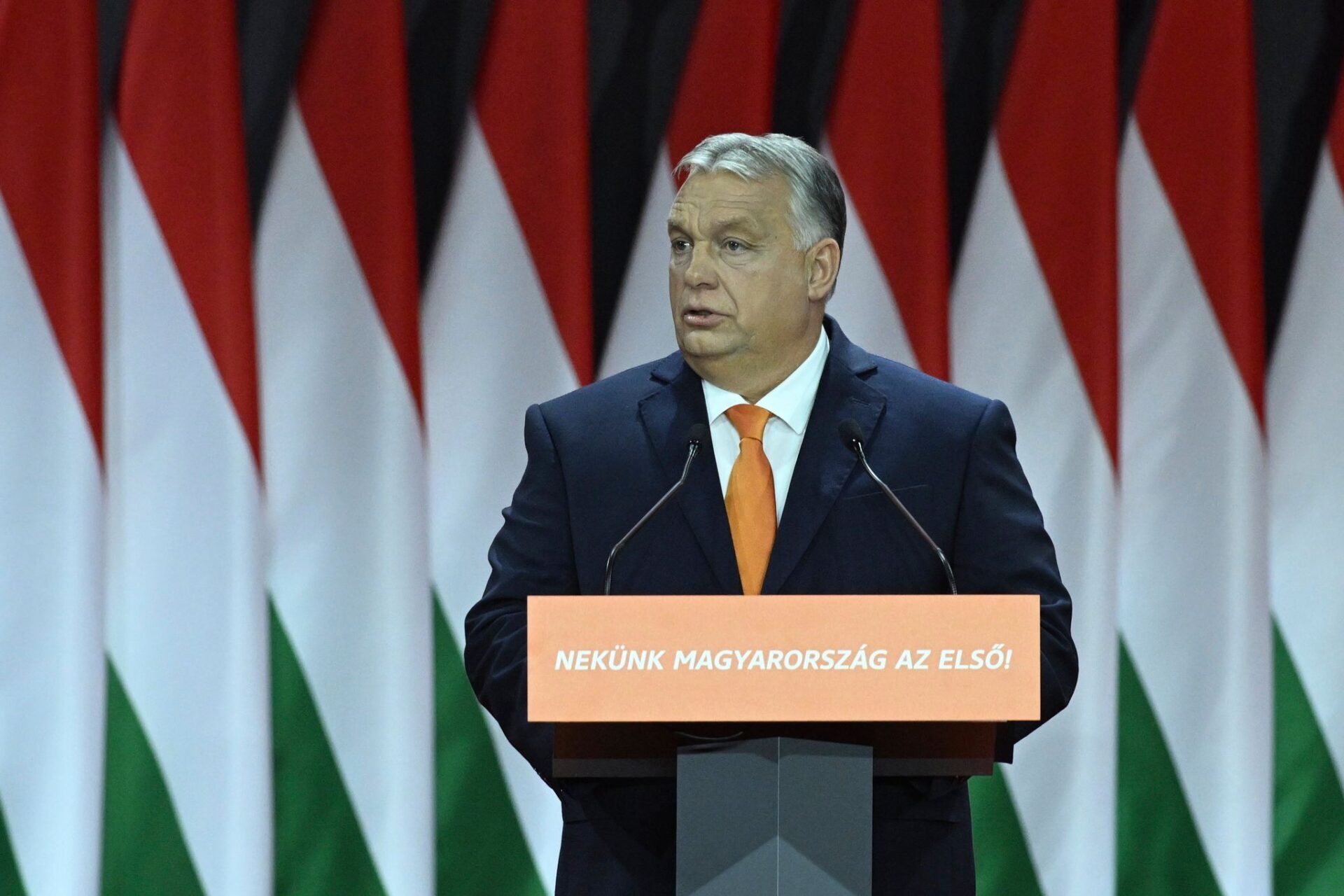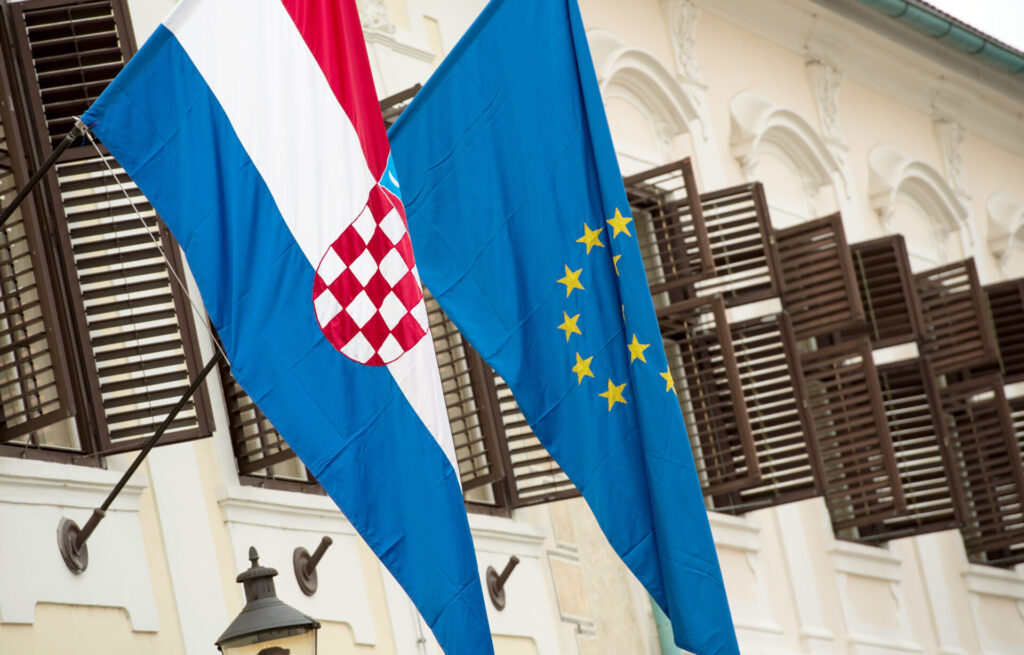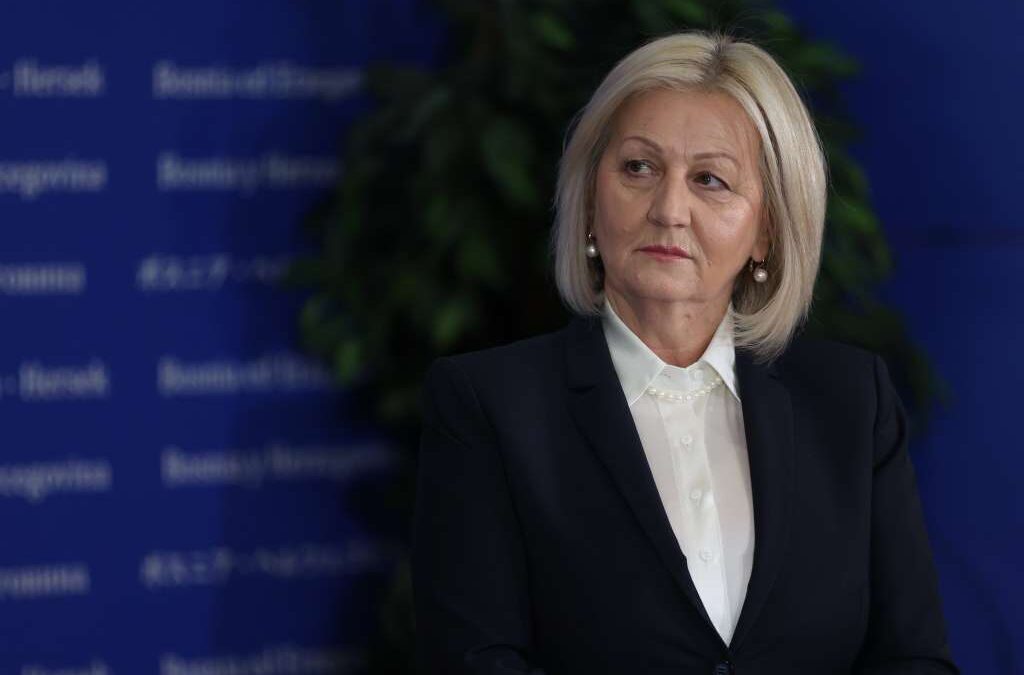 Have the article read by OpenAI (Beta). Please note that AI translations may take some time to process.
Have the article read by OpenAI (Beta). Please note that AI translations may take some time to process.BiH submits initial version of its Reform Plan document to the European Commission
Sarajevo (FENA) – The chairwoman of the Council of Ministers of Bosnia and Herzegovina (BiH), Borjana Krišto, has sent the first working version of the Reform Plan for BiH to European Commissioner for Neighbourhood and Enlargement Olivér Várhelyi.
This document was prepared by the ad hoc body of the BiH Council of Ministers and contains four priorities: green and digital transition, development of the private sector and business climate, development and retention of human capital and the rule of law.
Based on these priorities, an indicative list of projects was drawn up, which will be further developed in dialogue with the European Commission until March, when the final Reform Agenda should be agreed upon. This agenda will contain all the reforms and conditions necessary for the approval of funds and investment projects. After that, this process will be led by a permanent working team until its completion. This team will be appointed by the BiH Council of Ministers in 2024.
In the accompanying letter, chairwoman Krišto pointed out that the new Growth Package for the Western Balkans opened up new opportunities for investment in BiH’s economy, integration with the EU market and access to the benefits of EU membership, which until now were unavailable to candidate countries.
Krišto added that BiH faced a significant challenge in preparing the final Reform Plan, which is an important part of the Growth Plan for the Western Balkans. She also pointed out that it was extremely important to maintain the understanding and support of the European Commission to implement and successfully complete the process, with the absolute involvement and support of all constitutionally competent levels of government in BiH.
Krišto took the opportunity to thank Commissioner Várhelyi for hosting the Second High-Level Political Forum, which was held between BiH and the European Union in Brussels on 5 December. (6 December)

German FDP foreign policy spokesman lashes out at “foul player” Viktor Orbán
Berlin (dpa) – The foreign policy spokesman for the German liberal FDP parliamentary group in the German Bundestag, Ulrich Lechte, has accused Hungarian Prime Minister Viktor Orbán of blocking the EU’s Ukraine policy. In Berlin on Wednesday, Lechte said that Orbán was deliberately undermining efforts and united support for Ukraine in its quest for freedom.
“The future of Ukraine must not be determined by right-wing populists and open Putin friends in the EU. This once again highlights the urgent need for reforms in the EU voting process,” explained Lechte. “As the FDP parliamentary group, we rely on qualified majority decisions. For open foul players like Orbán, a mechanism for temporary exclusion from the EU is needed in case of doubt.”
In a letter to European Council President Charles Michel, Orbán wrote that expectations for a decision on the start of EU accession negotiations with Ukraine and the long-term EU budget to be made at the EU summit on 14 and 15 December in Brussels were unfounded. The letter is causing unrest in Brussels, because a large majority of EU member states actually want to make far-reaching decisions in favour of Ukraine. However, a decision is only possible if no member state vetoes it. (6 December)

Majority of Croats are interested in the European elections
Zagreb (HINA) – 57 percent of Croats are interested in the European elections that will be held in the middle of next year. According to the Eurobarometer survey presented in the office of the European Parliament in Zagreb on Wednesday, this figure is identical to the average at the level of the European Union
The figures show a significant increase of citizens interested in the European elections compared to the same period before the previous elections for the European Parliament in 2019. At that time, 46 percent of respondents in Croatia were interested in the European elections.
Divided by political spectrum, the most interested in the European elections are on the right (63 percent), while interest is equal on the left (56 percent) and in the centre (57 percent). However, fewer respondents in Croatia than in the entire EU answered that they would probably vote in the upcoming elections.
According to the Eurobarometer survey, 53 percent of Croats would probably vote in the elections if they were held next week, compared to 68 percent of EU voters.
Voter turnout in elections for the European Parliament is traditionally lower than in elections for national parliaments, and is highest in the ‘old’ EU member states.
In Croatia, 79 percent of citizens see benefits from membership in the EU, while 72 percent of respondents believe the same at the EU level.
More than two-thirds of Croats (73 percent) are optimistic about the future of the EU, while the average at the level of the Union is 60 percent. Only the French are mostly pessimistic about the future of the EU: 49 percent of them are pessimists and 46 percent are optimists. (6 December)
This is a compilation of the European coverage of enr news agencies. It is published Tuesdays and Fridays. The content is an editorial selection based on news by the respective agency.
